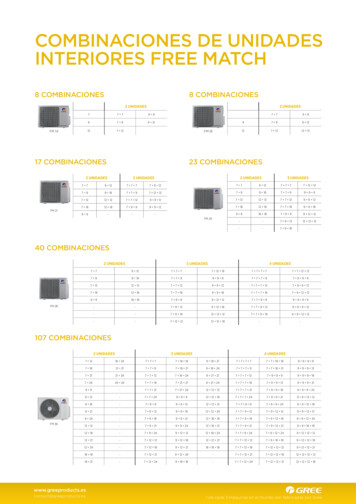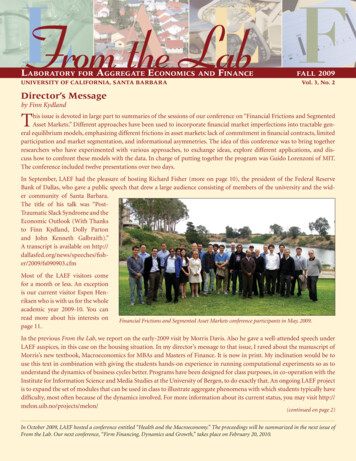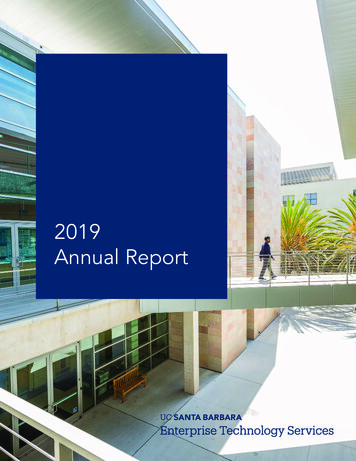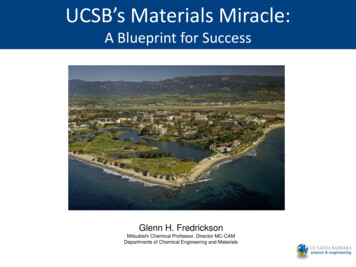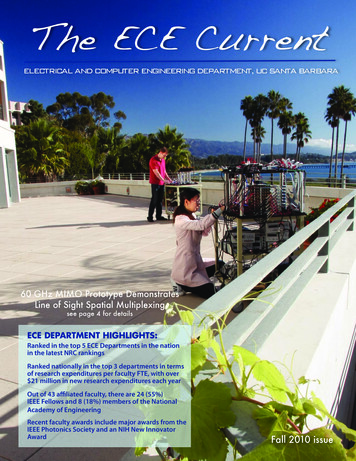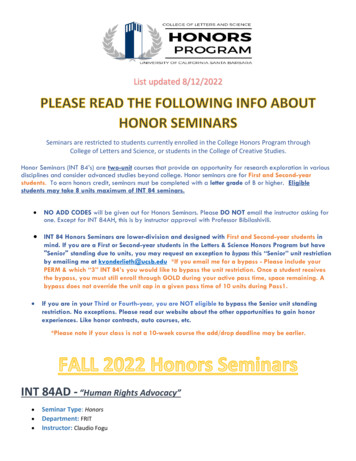
Transcription
List updated 8/12/2022Seminars are restricted to students currently enrolled in the College Honors Program throughCollege of Letters and Science, or students in the College of Creative Studies.Honor Seminars (INT 84’s) are two-unit courses that provide an opportunity for research exploration in variousdisciplines and consider advanced studies beyond college. Honor seminars are for First and Second-yearstudents. To earn honors credit, seminars must be completed with a letter grade of B or higher. Eligiblestudents may take 8 units maximum of INT 84 seminars. NO ADD CODES will be given out for Honors Seminars. Please DO NOT email the instructor asking forone. Except for INT 84AH, this is by instructor approval with Professor Bibilashivili. INT 84 Honors Seminars are lower-division and designed with First and Second-year students inmind. If you are a First or Second-year students in the Letters & Science Honors Program but have"Senior" standing due to units, you may request an exception to bypass this “Senior” unit restrictionby emailing me at kvonderlieth@ucsb.edu *If you email me for a bypass - Please include yourPERM & which “3” INT 84’s you would like to bypass the unit restriction. Once a student receivesthe bypass, you must still enroll through GOLD during your active pass time, space remaining. Abypass does not override the unit cap in a given pass time of 10 units during Pass1. If you are in your Third or Fourth-year, you are NOT eligible to bypass the Senior unit standingrestriction. No exceptions. Please read our website about the other opportunities to gain honorexperiences. Like honor contracts, auto courses, etc.*Please note if your class is not a 10-week course the add/drop deadline may be earlier.INT 84AD - “Human Rights Advocacy” Seminar Type: HonorsDepartment: FRITInstructor: Claudio Fogu
Instructor Email: claudiofogu@ucsb.eduDay - Time - Room: Wednesday 2:00-3:50 in Phelps 5316Enroll Code: 56028Course Description: This seminar is designed for students who are interested in merging ethical-politicalactivism with knowledge-building practices. In collaboration with the organization Scholars at Risk (SAR)students will work as the case-responsible entity for a scholar who is being persecuted for his/her ideas andfreedom of expression in a foreign country. Students enrolled are expected to improve skills in preparingreports, developing blogs, creating video and multimedia presentations, working with NGOs and governmentofficials, and generating public awareness and interest.Bio: Claudio Fogu is Professor of Italian Studies at UCSB. He has published widely on various fields of interest,ranging from the philosophy of history and memory studies, to the cultural history of Italian modernism andfascism. From the intersection of these various lines of interests have emerged his first monograph The HistoricImaginary. Politics of History in Fascist Italy (University of Toronto Press, 2003), and three co-edited volumes:The Politics of Memory in Postwar Europe (Duke UP, 2006), Metahistory’s Fortieth Anniversary (Storia eStoriografia, 2015), and Probing the Ethics of Holocaust Culture (Harvard UP, 2016). More recently, Fogu hasturned his scholarly attention to develop a Mediterranean approach to Italian history which has resulted in hislatest monograph, The Fishing Net and the Spider Web. Mediterranean Imaginaries and the Making of Italians(2020).INT 84AH - “INT 84AH: Special Relativity for Pedestrians ” Seminar Type: HonorsDepartment: PhysicsInstructor: Tengiz BibilashviliInstructor Email: tbib@physics.ucsb.eduDay - Time - Room: Wednesday 5:00-6:50 in PHELP 1440 *Open to Physics, Math, Statistics, Chemistry andCOE students. If you are not interested in one of these majors and still have interest in the class, please emailProfessor B.Enroll Code: 56176Course Description: The goal of the seminar is to teach Special Relativity (SR) using Einstein Notation (EN). Theclass is designed for enthusiastic students with no or little background in SR. Prerequisite Physics 8, or Physics21, or at least concurrent enrollment in Physics 21. First we will see how EN is used in non-relativistic physics.Then we will learn SR using EN. At the end we will explore how relativistic kinematics is used in High EnergyExperiments (HEX) in colliders (like LHC). Good grasp of EN will prepare students to better understand GeneralCovariance of Physics laws like Maxwell’s equations in Electromagnetism.Bio: Dr. B aka Tengiz Bibilashvili earned his Ph. D. at Tbilisi State University. His Ph. D. thesis was about Nonequilibrium Quantum Filed Diagrammatic. Later he focused on teaching physics and he prepared several Gold,Silver and Bronze Medal winners at the International Physics Olympiads based on physics problem solving.
INT 84BC - “Yoga: Theory, Culture & Practice” Seminar Type: HonorsDepartment: Black StudiesInstructor: Roberto StrongmanInstructor Email: rstrongman@ucsb.eduDay - Time - Room: Monday 2:00-3:50 - ONLINEEnroll Code: 27516Course Description: Yoga is a Sanskrit term that can be best translated as "Integration." The course aims todevelop an integral understanding of the history of yogic knowledges with roots in South Asia, creolization withXIX Century European body culture during the era of British imperialism, and a capitalist and often culturallyappropriative global spread in the late XX Century and beyond. This historical and philosophical material will be"yoked" (a cognate of "yoga") with a physical asana practice: the class will be organized in weekly two-hoursessions, with the first hour devoted to lecture, presentation, discussion and journal writing and the secondhour to a physical postural and breathing practice thematically wedded to the readings. As such, the deeper,even metaphysical, goal of the course will be to bring "union" to the budding scholar, fomenting a balanced,equanimous and holistic body-mind.Bio: Ph.D. Literature (UCSD 2003). I am a scholar of embodiment, specializing in trance states. My latest book"Queering Black Atlantic Religions" (Duke UP, 2019) speaks to my interest in fomenting an awareness of theunity within the body-mind construct, the goal of "yoga." In addition to my academic credentials, I am alsocertified as a massage therapist by the state of California and as a yoga instructor at the 500-hour level (thehighest recognizable credential in the field).In addition to my academic credentials, I am also certified as a massage therapist by the state of California andas a yoga instructor at the 500-hour level (the highest recognizable credential in the field).INT 84CC - “Art From Machines: Computer Numerical Control in the Hands ofCreators” Seminar Type: HonorsDepartment: Theater and DanceInstructor: Greg MitchellInstructor Email: gmitchell@ucsb.eduDay - Time - Room: Tuesday 3:00 PM-4:50 in TD-W 1530Enroll Code: 72330Course Description: Contemporary design and art such as sculpture and installation often integrate diversekinds of 21st century technologies into their creation and execution. Some of those technologies that were onceout of the reach of individual or unfunded artists are now becoming ubiquitous. We’ll introduce the class totechnological processes, machines, and applications that integrate computer control with creative work by usingthem to iterate real world objects. We’ll extrapolate how these processes can be used to design studio sizedfabrications and structures that are scale-able to impressive physical creations.
Bio:Greg Mitchell is an Associate Professor of Theatre Design. His work in Scenic Design, Lighting Design, Art Direction for Television, Projection, and Video Design has been seen aroundthe world.Professor Mitchell's recent projects have included Scenic, Lighting, and Costume designs for Arjuna's Dilemma, the first western style opera in Nepal. The Jazz-fusion cross cultural work wascreated as site specific production in one of the world’s oldest Hindu temples, a UNESCO site at Patan Durbar Square in Kathmandu.He collaborated with Opera Panama and the Panama Symphony Orchestra to design a site specific production of Macbeth in Panama City in the 400 year old ruin of the Convento de lasMonjas Concepciones. In addition to scenery designed to accommodate the fragile archaeological site, he projection mapped the interior of the structure to create a media design thataligned with the architecture.In Dublin, Ireland Professor Mitchell created an installation performing space in the Boys School at Smock Alley, the oldest extant theatre in Ireland, for the Creative Artists Collaborativeinvolving a three story tall sculptural work and a projection mapping of the medieval architecture.Recently he worked with Ping Chong and Company as a lighting and video projection designer on the new documentary-theatre production of Aan Yátx’u Sáani: Noble People of the Land.Theatre work includes Off-Broadway productions in New York City including Classical Theatre of Harlem’s Tartuffe Supreme, Classic Stage Companys’s Tempest Tossed, Baruch PerformingArts The Actors Rap, 321 Arts A Night in the Mind of Jim Jones. Other notable New York productions encompass years of collaboration with the site specific Brave New World Rep whichyielded a large scale immersive production of Shakespeare’s The Tempest on the Coney Island Boardwalk, The Merry Wives of Windsor (Terrace), Lynn Nottage’s Fabulation, and Fahrenheit451 presented at the Prospect Park Amphitheatre as part of Celebrate Brooklyn’s 2010 Season. He has designed numerous other productions in the city for organizations including ThreeGraces Theatre, New York Theatre Experiment, The New York International Fringe Festival, and the New York Musical Festival.Professor Mitchell’s regional theatre work spans hundreds of productions around the country including a multiple productions in Anchorage and Juneau Alaska for Perseverance TheatreCompany, in Maine at the Pensobscot Theatre Company, and Theatre at Monmouth, and seasons as the resident designer at Washington DC’s Source Theatre Company and WashingtonStage Guild. Elsewhere his theatre designs have been seen at Mac-Haydn (NY), Curtain Call (NY), Alpine Theatre Project (MT), The Kennedy Center (DC), The Studio Theatre, (DC), AfricanContinuum Theatre Company (DC), Tsunami Theatre (DC), Washington Shakespeare Company (DC), Imagination Stage (MD), Rep Stage (MD), Sierra Rep (CA), Summer Rep (CA), HackmatackPlayhouse (ME), American Stage Festival (NH), Playhouse on the Square (TN), Texas Shakespeare Festival (TX), Bristol Riverside Theatre (PA), Capital Playhouse (WA), and The Historic IaoTheatre (HI).Design for opera includes international productions in Nepal, Panama, and the costumes for Tannhauser in Tirana Albania for their national theatre Teatri Kombetar i Operas dhe i Baletit. Hehas worked on the development of new operas including a commission for the Princess Sophia about the sinking of a passenger ship off the Alaskan coast in 1918, and Llantos about theintersection of Gypsies and Jews during the inquisition. He has designed multiple productions for the Capital City Opera (DC), Juilliard Opera (NY), New Opera NYC (NY), and Opera Modesto(CA), and Chicago Opera Theatre (upcoming).As an art director and assistant art director, Professor Mitchell has worked on projects for ESPN, CNBC, MTV, and VH1.In educational theatre, Professor Mitchell has severed as guest artist, lecturer, or faculty member at the University of Maine at Orono, Whitman College, Fort Lewis College, CatholicUniversity, CUNY Laguardia, and Kathmandu University School of the Arts.His work outside of the theatre includes planning and designing events, architectural spaces, and interactive installations for clients such as Heineken, Pink, The Food Network, Vornado RealtyNYC, among many others. The range of this work spans turning a half acre of New York’s meat packing district into a Pumpkin Patch for Old Navy to multi-story interactive incendiary art forNevada’s Burning Man.Professor Mitchell is a proud member of USA Local 829, the union of stage designers. His work has been nominated for several awards including the Helen Hayes Award, BroadwayworldAwards, and Indy Awards.INT 84CE - “Clown Business” Seminar Type: HonorsDepartment: Theater & DanceInstructor: Daniel SteinInstructor Email: daniel stein@ucsb.eduDay - Time - Room: Thursday 2:00-3:50 in TD-W 1507Enroll Code: 27557Course Description: This course explores finding the personal freedom and confidence to speak your mind fromyour authentic self. You will use clown, theatre, and your imagination to engage and enchant your audience,whether of one or one hundred.Your curiosity is the only prerequisite for this course.This is a safe nonjudgmental space where you will get to play with your imagination to build confidence andpoise in interacting with others. The pleasure of stretching is not limited to your muscles, you can also stretchyour mind and imagination.Each of you has been working your entire life to become what you are today. Freedom to be who you are comesfrom within. This class aims to empower you to allow yourself to own your freedom by practicing seeing furtherthan your assumptions and clearer than your fear. Everyone makes assumptions and everyone experiences fear.
What we can do is train ourselves to use them as a springboard to go beyond them.There is a reason people go to see theater and plays. PLAY (P – Practice, L – Laughing, A – At, Y – Yourself) is notonly one of the roots of joy it can also be the foundation of discovery.Bio: Daniel Stein – Senior Lecturer - SOE-AYTeaches Movement for the Actor and Devising Original Work Theatre & Dance Dept.Curator of the ANNUAL PARTICLE COLLIDER FESTIVALAfter studying in the Professional Actors Training Program at Carnegie-Mellon University, notably with JewelWalker, Daniel went to Paris, France to study with Etienne Decroux, becoming M. Decroux’s frequent translator.Subsequently making his home in Paris for 20 years, Daniel started his professional career as an actor with theFrench National Theatre. His solo performances have toured in more than 30 countries, as well as in theatressuch as the Kennedy Center and Lincoln Center here in the United States. He has taught master classesthroughout the world at institutions such as Juilliard School of Drama and The Shanghai Theatre Academy.Daniel has received grants from the National Endowment for the Arts, the United States/Japan Commission, thePew Charitable Trust, and is a John Simon Guggenheim Fellow.Summers have seen him in Seoul, S. Korea devising original work with 18 Korean actors from “Flying Off theCliff” Theatre Co. as well as teaching Generating New Performance Material and Creativity to students atEmbodied Poetics, London, England. https://www.embodiedpoetics.orgPrior to finding his artistic home here at UCSB he spent seven years at Brown University as Head of Movementand Physical Theatre for their MFA Professional Actor Training Program and before that over a decade atDell’Arte International School of Physical Theatre in Blue Lake, CA. serving as School Director and core instructor.He is thrilled to be part of this wonderful UCSB BFA Theatre program.For more information visit PoeticDynamics.comINT 84CS - “The World's Worst Poetry” Seminar Type: HonorsDepartment: Comparative LiteratureInstructor: Thomas MazanecInstructor Email: mazanec@ucsb.eduDay - Time - Room: Thursday 2:00-3:50 in HSSB 4202Enroll Code: 56010Course Description: In this course, students will read a selection of poems that have, at various times andplaces, been considered “the worst.” In so doing, we will explore the grounds on which negative literaryjudgments are made, and how these standards shift as the social, historical, and political forces that shape themchange. Primary readings of “bad” poetry and judgments on them from many literary traditions will be availablein English translation, accompanied by secondary readings that introduce major trends in literary theory. For thefinal project, students will write the worst poem they can imagine, accompanied by a critical essay explainingwhy it should be considered bad. These poems will be read aloud in a bad poetry slam open to the public.Bio: Thomas Mazanec is assistant professor of East Asian Languages & Cultural Studies and Comparative Literature atUCSB. He regularly teaches classes on translation, Chinese literature, Classical Chinese language, and Buddhism. He isthe author of many scholarly articles on Chinese poetry, and his book Poet-Monks: The Invention of Buddhist Poetry
in Late Medieval China is forthcoming from Cornell University Press. Among other projects, he is currently co-editingThe Worst Chinese Poetry: A Critical Anthology with colleagues Xiaorong Li and Hangping Xu.INT 84CT - “Chronic Pain: Theory and Recovery Techniques” Seminar Type: HonorsDepartment: PhysicsInstructor: Paul HansmaInstructor Email: phansma@ucsb.eduDay - Time - Room: Wednesday - 4:00-5:50 in GIRV 2110Enroll Code: 56069Course Description: Chronic pain and pain-related disability in the United States costs 560- 650 billion dollars,far exceeding the costs of cardiovascular disease, cancer, and diabetes. Fortunately there have been recentresearch breakthroughs in understanding Chronic Pain through fMRI, functional Magnetic Resonance Imaging,and Quantitative Electroencephalogram (EEG) Source Localization. These breakthroughs have stimulated new,effective approaches for reducing or eliminating chronic pain based on retraining the brain.A group here at UCSB consisting of Professors Paul Hansma, Linda Petzold, Michael Miller, and Chancellor Yangand their students has been working to develop gadgets to help in retraining the brain. They have had goodsuccess so far, not only in helping students and others retrain their brains to reduce or eliminate chronic pain,but also in developing new biofeedback devices to help. The devices help people learn how to get out ofsympathetic nervous system activation (fight or flight). This helps them break the fear-pain cycle that stabilizesand increases chronic pain.This seminar will begin with background information on the subject from published articles and other sources.This background information will be discussed in the seminar. These discussions will lead to new lines ofinvestigation to understand chronic pain. This seminar will then involve students in this ongoing effort to notonly understand chronic pain, but to use that understanding in helping people reduce or eliminate chronic pain.Opportunities will include, according to the student's abilities: research into the fast moving field of effectivestrategies, working to evolve more effective ways to use our prototype devices, working with subjects to helpthem understand how to use the devices, developing software that is more effective for retraining the brain,developing protocols that motivate people to use the devices, developing new devices, and, hopefully, newdirections that cannot be anticipated.Bio: Paul Hansma, PhD, is a physicist at the University of California, Santa Barbara and a researcher in theNeuroscience Research Institute. His inventions include Atomic Force Microscopes that function with samples inair or fluid, which have been commercialized by Digital Instruments (now Bruker) and Asylum Research (nowpart of Oxford Instruments), the Scanning Ion Conductance Microscope, and Bone Diagnostic Instrumentsincluding the Osteoprobe commercialized by Active Life Scientific. It had been used on over 3,000 patients by2015. The OsteoProbe obtained European regulatory approval, is now CE Marked, has been used on over 3,000patients. The FDA approved it in 2021 and it is now being used by local physicians. His current research focus ison devices to quantify and reduce chronic pain as a part of a brain retraining program that includes educationand activities. He has over 350 publications, with over 50,000 citations and an H factor of 113.INT 84CU - “Science Behind Wall Street and the Insurance Industry” Seminar Type: Honors
Department: Statistics and Applied ProbabilityInstructor: Hal PedersenInstructor Email: hpedersen@pstat.ucsb.eduDay - Time - Room: Monday 12:00-1:50 in Sobel Seminar Room - SH 5607FEnroll Code: 56101Course Description: We will discuss the science and mathematics behind careers in Wall Street and insurance(actuaries and underwriters). What do these people do, why is it exciting, how is it beneficial to society andwhat should you study if you want to pursue that career? We will discuss the basic principles and how themathematics applied. Limitations of the science will also be addressed and we will look at some major failureswhere major losses occurred.Bio: Hal W. Pedersen, ASA, MAAA, PhD is one of the world’s leading experts on economic scenario generationwith more than 20 years academic and industry experience. He is a senior lecturer at the University of CaliforniaSanta Barbara (UCSB) where he also serves as director of the actuarial program. Prior to joining UCSB he was aManaging Director with Conning where he lead the development of Conning’s economic scenario generator andits application to investment risk management. He served as L.A.H. Warren professor of actuarial science at theUniversity of Manitoba from 2003 through 2011 and he was a member of the actuarial faculty at Georgia StateUniversity from 1996 through 2001. He is past chair of the Investment Section Council of the Society ofActuaries, current co vice-chair of the Education and Research Section Council of the Society of Actuaries, and amember of the American Academy of Actuaries Economic Scenario Work Group (ESWG).INT 84CV - “What is life?” Seminar Type: HonorsDepartment: Department of Chemistry and BiochemistryInstructor: Luc JaegerInstructor Email: jaeger@ucsb.eduDay - Time - Room: Tuesday & Thursday 9:00-9:50 in PSBN 4606Enroll Code: 70631Course Description: This Honors Seminar is essentially intended to provide a deeper understanding of Life andits origin from scientific, philosophical and Judeo-Christian religious perspectives. Rather than opposing scienceand religion, this class aims at reconciling these two visions of the world, which both originate from a commonquest for truth. Implications for the future of science and civilization will be discussed.Bio: Dr. Jaeger joined the Chemistry and Biochemistry Department in 2002. He hasbeen full professor since 2012. His highly interdisciplinary research encompasses fieldsas diverse as RNA biochemistry and biophysics, nucleic acid nanotechnology, astrobiology, synthetic biology andnanomedicine. He is also interested in the dialogue between science and religion. This honors seminar isessentially based on the research he carried out when a fellow scholar at the Notre Dame Institute for Advancestudy at the University of Notre Dame, Indiana, in 2017-2018.INT 84ZB - “Causes and Consequences of Sea-Level Rise: A GeologicPerspective”
Seminar Type: HonorsDepartment: Earth ScienceInstructor: Alex SimmsInstructor Email: asimms@geol.ucsb.eduDay - Time - Room: Thursday 4:00-4:50 in HSSB 2202 *with overnight camping tripEnroll Code: 27573Course Description: During this course we will discuss the causes of sea-level rise at several different timescales and its influence on the natural and geologic system. It will include an overnight fieldtripBio: Prof. Simms grew up in Oklahoma and started studying coasts in graduate school at Rice University inHouston, Texas. He has reconstructed past sea levels across four continents including locations within the USA,Antarctica, South Korea, and Scotland.INT 84ZW - “Climate Changes: insights from the past” Seminar Type: HonorsDepartment: Earth Science DepartmentInstructor: Syee WeldeabInstructor Email: sweldeab@ucsb.eduDay - Time - Room: Friday 2:00-3:50 in in GIRV 1108Enroll Code: 56002Course Description: The focus of this seminar is to show and discuss the manifestation of ongoing climatechanges in various parts of Eco-system. The seminar highlights the magnitude and difference of air and oceanwarming of in different parts of the globe, sea level rise and ocean acidification, and the impacts of thesechange on habitats. The Seminar informs how our understanding of past climate changes improve and refinethe impact and feedback mechanism of current and future climate changes.Bio: https://weldeab.geol.ucsb.edu/
Santa Barbara (UCSB) where he also serves as director of the actuarial program. Prior to joining UCSB he was a Managing Director with Conning where he lead the development of Conning's economic scenario generator and its application to investment risk management. He served as L.A.H. Warren professor of actuarial science at the

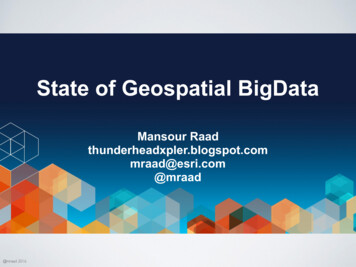

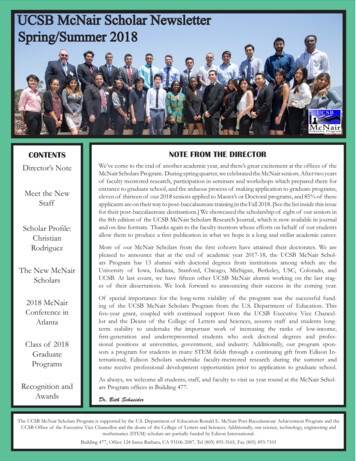

![NIAS EN COLOMBIA - Normas de Aseguramiento [Modo de compatibilidad]](/img/18/nias-en-colombia-normas-de-aseguramiento.jpg)
